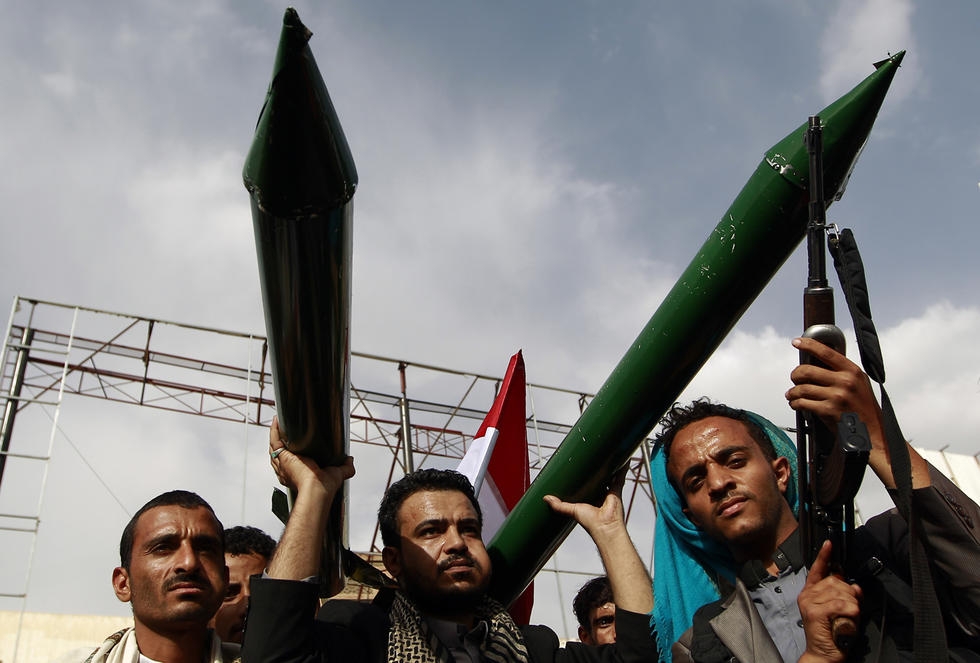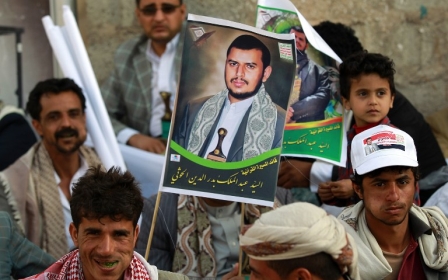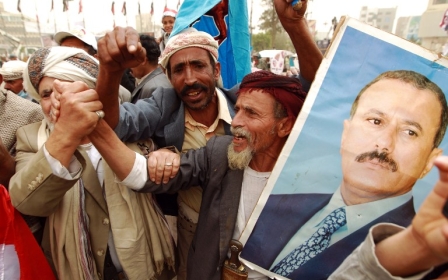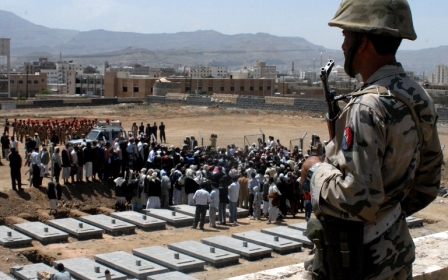Breakthrough 'very unlikely' in Yemen talks

Yemen's warring factions will come together for the first time in Geneva on Monday in a bid to resolve the bloody conflict between Shia Houthi militia and the government of exiled President Abd Rabbuh Mansour Hadi.
The UN's peace envoy for Yemen, Ismail Ould Cheikh Ahmed, said in a statement that Monday would see the start of "preliminary inclusive consultations" on the war that has claimed more than 2,500 lives and sparked a "catastrophic" humanitarian crisis.
Analysts said a breakthrough was "very unlikely", however, and the delegations will not even begin talks in the same room.
Instead they will start with "what we call proximity talks" in two separate rooms with the envoy shuttling between them "with the hope they can be brought together", UN spokesman Ahmad Fawzi told reporters in Geneva.
UN Secretary General Ban Ki-moon, who will attend the opening session of the talks, appealed for participants to take part "in good faith and without pre-conditions".
He has said the negotiations are aimed at securing a ceasefire, agreeing on a withdrawal plan for the Houthi militia and stepping up humanitarian aid deliveries.
Ban also said on Monday, referring to an immediate humanitarian ceasefire in Yemen, "We do not have a moment to lose," adding that the fighting was "giving strength to some of the world's most ruthless terrorist groups."
"I hope this week starts the beginning of the end of the fighting," Ban said, stressing this was vital to get crucial humanitarian supplies through.
Yemen has been wracked by conflict between the militiamen and Hadi's internationally recognised government, with analysts saying the fighting has reached a stalemate.
The militia, supported by military units loyal to ex-president Ali Abdullah Saleh, have seized control of large parts of the country including the capital Sanaa, forcing Hadi to flee to Saudi Arabia.
Fearing an Iran-friendly militia on its southern border, Riyadh has been leading a campaign of airstrikes against the rebels since 26 March but has so far failed to force them from territory they have seized.
Meanwhile the UN has described the country's humanitarian crisis as "catastrophic", with 80 percent of the population - 20 million civilians - in need of aid.
Any chance of success at the first talks between the warring factions since Hadi fled Sanaa in February was "very unlikely", Yemen expert Laurent Bonnefoy said, adding: "Indeed, each side appears to be inflexible, disinclined toward compromise."
Nevertheless, the talks could offer breathing space, allowing Saudi Arabia to announce a truce that would launch more serious discussions as well as "save face by stopping an offensive they are clearly unable to win on the field," said the analyst from the International Research Centre at Sciences Po.
On Sunday the Houthis took control of Al-Hazm, the main city of Jawf province, residents and pro-government fighters said.
The city lies only 150 kilometres (90 miles) south of the border with Saudi Arabia.
In Yemen's main southern city of Aden, coalition airstrikes on Sunday killed 13 militiamen, a military source close to them said.
Fighting raged on across several districts of Aden, residents said, accusing the Houthis of firing Katyusha rockets on residential areas and destroying at least six homes.
And in Daleh farther north, six militiamen and four pro-government fighters died in 24 hours of clashes, the province's deputy governor said.
When pressing for a ceasefire, Ban stressed, "Ramadan begins in two days," and said that the holy Muslim month should be a period for harmony, peace and reconciliation.
"I have emphasised the importance of another humanitarian pause for at least two weeks," the UN chief said, after meeting the government delegation.
The World Health Organisation said Friday that 2,584 people had been killed in fighting in Yemen as of 7 June, with 11,065 wounded.
Representatives of Hadi's government had arrived on Saturday for the talks, which had been due to start on Sunday but were delayed after the Houthis refused to board a UN plane that had been scheduled for a stopover in Saudi Arabia.
The government delegation led by the foreign minister reiterated its demands on Sunday night, including that any ceasefire must see the militias withdraw from all territory they have conquered.
The talks had first been due to take place on 28 May but were postponed.
The Houthis had not yet arrived in Geneva for peace talks because their plane was delayed, UN and diplomatic sources said on Monday.
The delegation comprising members of the Ansarullah and their allies left Sanaa on Sunday afternoon but were forced to have a long halt in Djibouti, the sources said.
New MEE newsletter: Jerusalem Dispatch
Sign up to get the latest insights and analysis on Israel-Palestine, alongside Turkey Unpacked and other MEE newsletters
Middle East Eye delivers independent and unrivalled coverage and analysis of the Middle East, North Africa and beyond. To learn more about republishing this content and the associated fees, please fill out this form. More about MEE can be found here.




